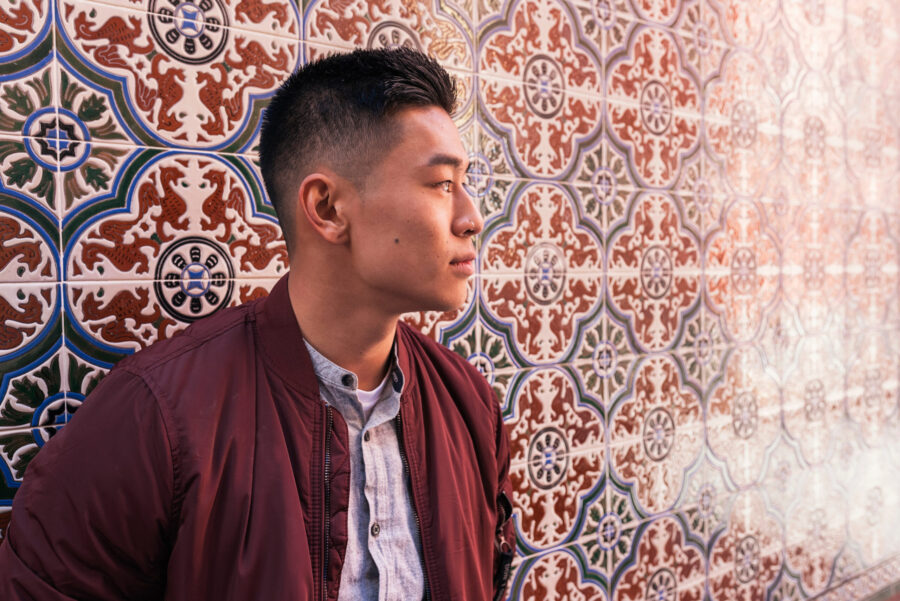What Is “Thriver’s Guilt?” Ask ADIPA (AAPI) Children of Immigrants
Growing up as the child of first generation immigrants, living at the intersection of two cultures, second generation children sometimes carry a unique burden: thriver’s guilt. In an advice article for The Washington Post, therapist Sahaj Kaur Kohli, founder of Brown Girl Therapy, offers insights into the difficulties second generation children have in seeking therapy, as they frequently rationalize their problems, assuming they do not matter because their parents had it worse.
Kaur Kohli shares her personal experience of bicultural straddling: “As the first in my family to be born in the West, go to therapy, and marry outside my race, religion and culture, I have always had to navigate my feelings of guilt and have painful and difficult conversations with my immigrant parents about the choices I am making that are different from their expectations.”
Her APIDA heritage (Asian Pacific Islander Desi American, which explicitly includes South Asians from the Indian subcontinent under the AAPI umbrella) creates constant tension in decision-making, as children’s cultural values clash with those of their parents. “The collectivist cultural influence encourages second-generation immigrants to prioritize family and community, sometimes at their expense,” she explains, while “the individualistic cultural influence suggests they prioritize themselves, sometimes at the expense of others.”
When second-generation immigrants do make their own choices, they can tend to feel guilt for being “ungrateful” in their parents’ eyes. She has coined the term “thriver’s guilt” to describe the feelings of children of immigrants for having access to more resources and opportunities than their parents.
What to do with guilt?
Kaur Kohli unpacks guilt, its legitimate purpose and what to do when it gets in the way of mental health. She starts by reminding her clients that pain is not a competition between generations. Guilt can come from multiple places. Sometimes parents heap guilt on their children, reminding them of the sacrifices they made to come to America, in order to shape their behavior. Sometimes children experience it of their own accord.
Guilt can be a “useful emotion,” motivating behavior that strengthens social bonds and increasing empathy. However, chronic, extreme feelings of guilt are linked to mental health struggles like anxiety and depression.
To help children of immigrants in sifting through these issues, Kaur Kohli has started a wellness community called Brown Girl Therapy. And she works to help her patients manage bicultural guilt.
Guilt does not equal wrongdoing
First, she recognizes that nearly all of her second-generation immigrant patients “have conflated feeling guilty with doing something wrong.” The presence of guilty feelings causes them to change their behavior to placate their parents.
For example, a client wanted to spend one week with her family at holiday time instead of several weeks. When her mother guilt-tripped her into feeling she didn’t care about her family, the client changed her plans to stay multiple weeks, “believing the guilt was telling her that she’s a bad daughter and must make amends to stop feeling that way.”
Distinguish between helpful and unhelpful guilt
Helpful guilt leads to positive change, for example, repairing a broken relationship if you have caused another genuine harm. On the other hand, unhelpful guilt “causes pain and anxiety, and can turn into shame and self-punishment,” she explains. It is unhealthy to assume that because you feel bad, you are bad.
Learn to manage your feelings
If you catch yourself in that negative downward spiral, disrupt it. “Sit in the feelings, identify and name them, and invite them in as visitors,” she urges. Often, guilty feelings are rooted in deeper issues like people pleasing, codependency, or resenting a lack of boundaries.
Practice self-compassion
It is possible to make a choice that disappoints others that is still the best choice for you. Challenge the notion that only one party can be right or satisfied. Reframe “I should” statements into “I can” statements, which allow for other possibilities.
Reject emotional reasoning, the feeling that simply because we feel guilty we have done something bad. The two are not equivalent.
Parental disapproval is often rooted in fear that you will reject their culture. Give yourself time to assuage your parents’ fears that your independent choices will erase your heritage. Slowly, they may come around to seeing that you can both love and respect them while making choices in line with your happiness and values.
Read the full article here.
Kaur Kohli, Sahaj. “Do you feel bad for seeking therapy? It’s called ‘thriver’s guilt.’” The Washington Post, 4 May 2024, https://www.washingtonpost.com/wellness/2024/05/04/guilt-second-generation-immigrants-coping-strategies/.



